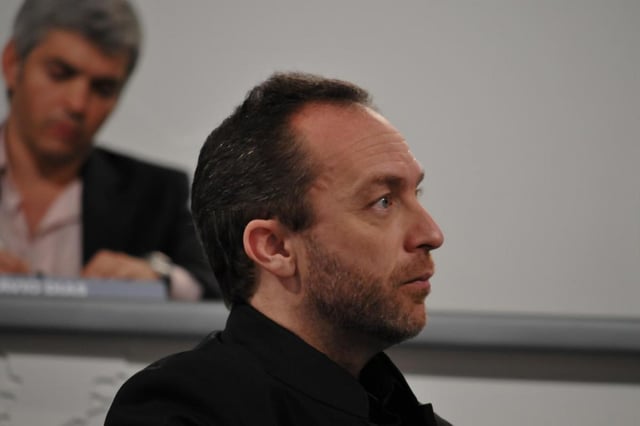Wikipedia’s ‘Gaza Genocide’ Article Sparks Heated Debate: Jimmy Wales Steps In
The Israel-Hamas conflict has become one of the most fiercely debated topics on the planet, and that intensity has now spilled over into the digital realm. Wikipedia, the world’s largest online encyclopedia, has found itself at the center of controversy as editors fiercely debated the framing of an article about the conflict, specifically whether or not the term “genocide” should be used to describe the situation in Gaza. This intense disagreement ultimately led to Wikipedia founder Jimmy Wales stepping in, highlighting the challenges of maintaining neutrality on such sensitive subjects.
The Battle Over Framing: “Genocide” or Not?
The core of the dispute revolves around whether the events in Gaza constitute genocide, a term with significant legal and historical implications. Some editors argued that the scale of death and destruction, coupled with alleged intentionality, warrants the use of the term. They pointed to statements from international organizations and legal scholars who have raised concerns about potential genocidal acts. The use of such language would significantly alter the article’s perceived neutrality, and that’s where the disagreement began.
Other editors strongly opposed using the term “genocide,” arguing that it is a highly charged accusation that requires conclusive legal proof. They contended that while the suffering in Gaza is undeniable and tragic, it doesn’t necessarily meet the legal definition of genocide as defined by the Genocide Convention. These editors emphasized the importance of adhering to Wikipedia’s neutral point of view (NPOV) policy and avoiding language that could be interpreted as biased or inflammatory. The Wikipedia community relies heavily on reliable sources to support claims, and the definition of “reliable” becomes a contentious point when dealing with politically charged issues.
The debate highlights the inherent difficulty in applying emotionally charged terms to ongoing conflicts. The speed at which information is disseminated and the often-partisan nature of reporting further complicate matters. It becomes exceedingly difficult for Wikipedia editors to sift through the noise and present a balanced, neutral account that satisfies all parties.
Jimmy Wales’ Intervention: A Quest for Neutrality
Faced with this escalating conflict among editors, Wikipedia founder Jimmy Wales intervened in an attempt to guide the discussion toward a more neutral and productive path. While the specifics of his intervention remain largely behind closed doors, it is understood that Wales reiterated the importance of adhering to Wikipedia’s core principles of neutrality and verifiability. His involvement underscores the seriousness of the situation and the potential impact of Wikipedia’s coverage on public perception of the conflict.
Wales’ intervention wasn’t necessarily about taking a stance on the “genocide” debate itself, but rather about ensuring that the discussion was conducted in a civil and evidence-based manner. He likely reminded editors of the need to focus on reliable sources, avoid original research, and respect differing viewpoints. His experience in navigating complex editorial disputes within Wikipedia likely proved valuable in attempting to de-escalate the situation and refocus the discussion.
However, some critics argue that even Wales’ intervention is inherently political, as any attempt to define or frame the conflict inevitably carries a certain bias. Maintaining true neutrality on such a sensitive topic may be an impossible task, and even the most well-intentioned efforts can be perceived as favoring one side over another.
The Wider Implications for Wikipedia and Online Neutrality
The “Gaza genocide” article dispute has broader implications for Wikipedia and the challenges of maintaining neutrality in the age of information overload. It raises questions about how Wikipedia should handle politically charged topics, particularly when there is no clear consensus on the facts or the appropriate terminology. The platform’s reliance on volunteer editors, who often bring their own biases and perspectives to the table, further complicates the issue.
Furthermore, the incident highlights the potential for manipulation and agenda-pushing on Wikipedia. Determined individuals or groups can attempt to influence the content of articles to promote a particular viewpoint, potentially distorting the information presented to the public. This is a constant battle for Wikipedia editors, who must remain vigilant against such attempts.
Ultimately, the “Gaza genocide” article dispute serves as a reminder of the ongoing challenges of maintaining neutrality and accuracy on Wikipedia and other online platforms. In an era of misinformation and polarization, it is crucial to be aware of the potential biases and agendas that can influence the information we consume. Critical thinking, careful evaluation of sources, and a willingness to consider multiple perspectives are essential tools for navigating the complex digital landscape. The outcome of this particular dispute will likely shape how Wikipedia handles similar controversies in the future.
